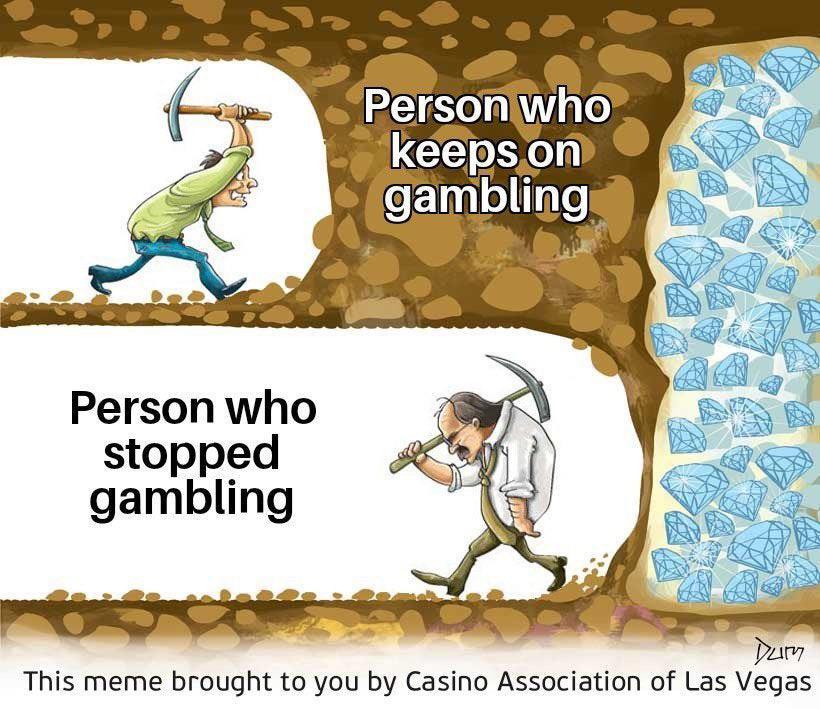This week, I played free online Poker. Unfortunately, there wasn’t a ton of dialogue between players as they were very casual, free games. In past experiences with playing actual Poker and Blackjack, both with friends and with strangers, there is definitely an allusion of skill being the dominant force in the game. In each, there is some level of skill — if you’re completely unexperienced you will lose — but for those that are “skilled,” they are still at the whim of the cards. This sense of skill in the game does keep players invested and the game interesting; the results don’t feel arbitrary, instead wins feel earned and losses, sometimes, deserved. Additionally, the unknown of what the next cards dealt will be keeps players playing out of a sense of FOMO.
There’s a common joke among my friends that goes something along the lines of “there’s no gambling addicts, they just stopped gambling too early,” or “99% of gamblers quit right before they’re about to win big.” These sentiments are where ethical considerations begin to enter. With regular game design, making games addictive is intentional and generally without too significant of harms. Sure, players should have balanced lives and Candy Crush shouldn’t destroy their relationships, but the negative consequences of playing too much are limited. With gambling games involving real money, suddenly addictively designed games are a much bigger risk. The digitification of gambling makes the problem even worse. Somewhat tangentially, even beyond what we typically consider games, the innately addictive elements of games of chance have found their way into other digital products, such as daytrading with Robinhood.
The key differences between games of chance such as Poker and others are the stakes. In FIFA and other sports games, a popular mechanic is to have packs of players, similar to trading cards, be a mystery to players until they purchase and unpack them, with the quality of players based on the posted probabilities for the purchasable decks. While this has some negative risk with kids developing addictions to the adrenaline-filled game of chance of unpacking, the mechanic is transparent. It’s based entirely on luck and relies on probabilities that are shown to the player. In contrast, Poker typically portrays itself as a game of skill, one that can be won as players get better over time, incentivizing them to keep playing while enduring losses. Ultimately, the key difference between these games and the reason that Poker is ultimately more destructive is the way players perceive the game and the stakes at play. Poker is the ultimate example of a high stakes game that’s purposefully addictive through a combination of chance, FOMO, and the illusion of skill as the dominant feature. As game designers, it’s important to keep the example of Poker and other games in mind to ensure that you’re protecting players from themselves in any scenario where the game can ultimately be destructive to themselves, their relationships, or their money.




